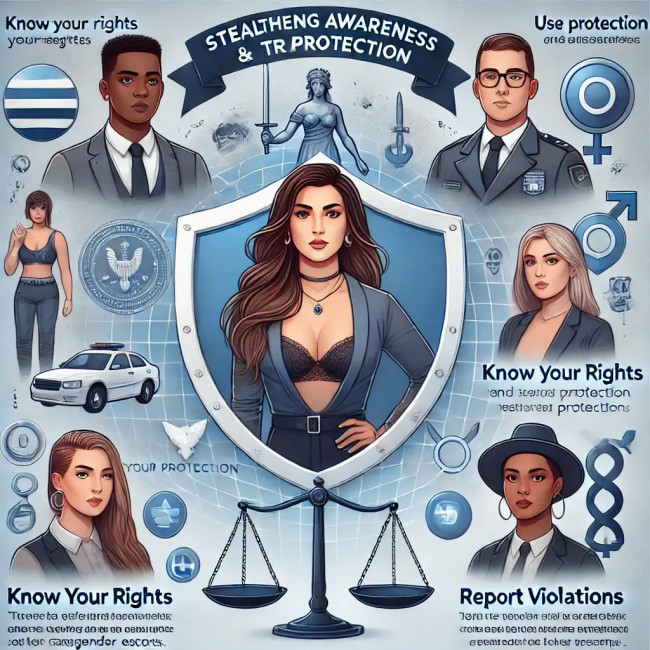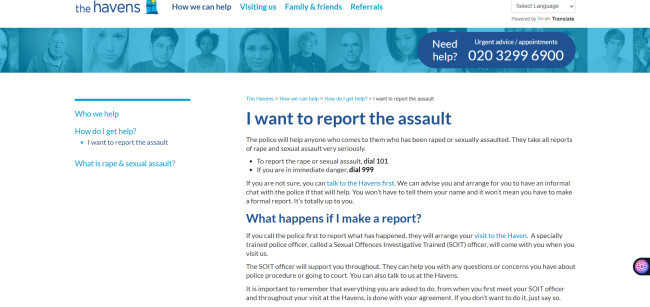Stealthing: What Escorts Need to Know and How to Protect Yourself
Professional Guidance for Escorts: How to Handle Condom Removal During a Client Encounter
Stealthing in Escort Work: What It Is, How to Handle It, and Protect Yourself

Stealthing—when a client removes a condom without your consent during sex—is a serious violation of your boundaries, trust, and bodily autonomy. As an escort, it's essential to understand what stealthing is, how to handle the situation if it happens, and what steps to take to protect your health, safety, and legal rights. This guide will empower you with the knowledge to protect yourself and navigate this difficult situation with confidence.
Stealthing Experience as a Sex Worker
What to Do If It Happens to You I’ve been in this industry for over seven years, and I had never encountered anything like this—until it happened to me. During anal intercourse in the doggy position, a client purposely removed the condom without my consent. I didn’t feel anything at first because he was fast, and the condom had slipped off a few times before. But after he came inside me, I realized what had happened.
I was in shock. He not only violated my boundaries but also put my health and life at risk. To make things worse, he tried to convince me that he hadn’t done it—when it was obvious he had.
If this ever happens to you, it’s important to know the steps to take to protect yourself physically, legally, and emotionally. Here’s what you need to do.
1. Seek Medical Attention Immediately
First things first—whether you're in London or anywhere in the UK, if this happens to you, go to Accident & Emergency (A&E) immediately to get PEP (Post-Exposure Prophylaxis) as soon as possible. PEP must be taken within 72 hours of exposure to be effective.
In my case, it happened on a Friday evening when all General Practitioners (GPs) were closed for the weekend. That meant my only option was to go to the nearest A&E. Be prepared—the waiting time can be long, sometimes 4 to 8 hours, especially on busy weekends. Yes, I know, it's frustrating, but it’s crucial to get PEP as soon as possible to reduce the risk of HIV infection.
Stay patient, stay strong—getting medical help is the priority.
Understanding PrEP & PEP: Key Differences and How They Protect Against HIV

The main difference between PrEP and PEP comes down to timing. Both are highly effective medications that help prevent HIV and are readily available through the NHS.
PrEP (Pre-Exposure Prophylaxis): A daily pill taken before potential HIV exposure to reduce the risk of infection. It provides continuous protection when used consistently.
PEP (Post-Exposure Prophylaxis): A 28-day treatment taken after potential exposure to HIV. It must be started within 72 hours to be effective.
2. Staying on Track: The 28-Day Medication Challenge
Once you have your medication, make sure to take it consistently for 28 days without missing a dose. I know it can be challenging, but setting an alarm on your phone can help remind you to take it on time every day. Stay committed, and once you complete the 28 days, congratulations—you’ve achieved your goal!
3. Report the Incident (If You Feel Safe Doing So)

Stealthing is a form of sexual assault and is recognized as a crime in certain jurisdictions. In the UK, recent legal changes have classified stealthing as a serious offense.
If you decide to report it, you can contact the police or speak with a sexual assault support service for advice and support.
If you're unsure, seeking legal advice can help you understand your options before taking further action.
Forensic evidence collection is crucial: for vaginal assault, it’s important to do so within 7 days, and for anal intercourse, within 3 days. Timely evidence collection is critical. If you are a transgender person or a sex worker, it’s important to reach out to The Havens,(https://thehavens.org.uk/) specialist centres in London that support individuals who have experienced rape or sexual assault.
Once you contact them, they will guide you on the next steps and provide the help you need.
4.Get Tested for STIs (After 2 Weeks )
Stealthing exposes you to various sexually transmitted infections (STIs), not just HIV. Visit a sexual health clinic for a full screening, including gonorrhea, chlamydia, syphilis, and hepatitis. Some infections may not show up immediately, so follow your doctor’s advice on when to get retested. If you develop symptoms, seek medical care immediately.
5. After Completing PEP Treatment, Wait 6 Weeks for HIV Testing
After finishing your PEP medication, you’ll need to wait 6 weeks before getting your HIV blood test. This means the total process, including the medication period, will take around 10 weeks. While it might feel like a long journey, once you’ve completed it, you’ll be okay.
However, it’s important to continue getting tested regularly—at least every 3 months—to stay on top of your health.
No one deserves to go through this. If it happens to you, remember that it’s not your fault, and you have the right to seek help and protect yourself. Stay informed, take action, and surround yourself with support. If you need help, don’t hesitate to reach out to sex worker support organizations, sexual health clinics, or legal aid services. Your health and safety come first.











Comments
0 comment